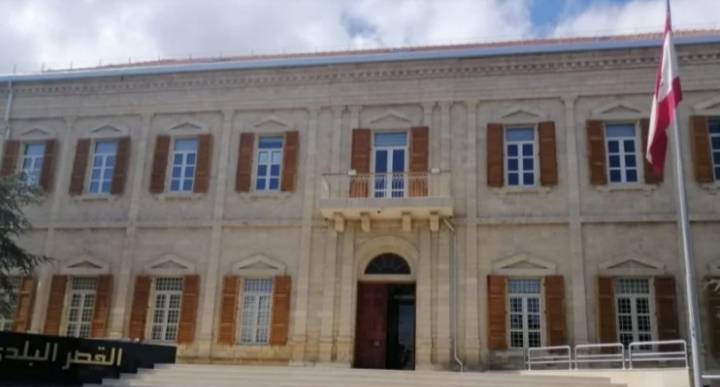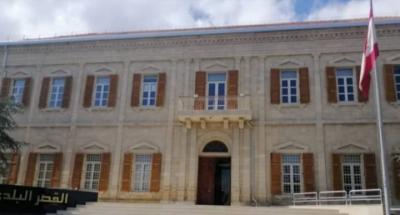If the budgets established by institutions and sometimes even individuals reflect their aspirations and plans for future development, for most municipalities in Lebanon, they have become a way to manipulate their finances to ensure their survival, even at a minimum level, and thus secure the payment of essential obligations, especially employee salaries, and guarantee the purchase of fuel and requirements for waste collection vehicles and public cleanliness.
The significance of examining the numbers in municipal budgets lies not only in understanding their finances and struggles amid the crisis but also in what they reveal about the Lebanese people's repeated attempts to extract opportunities from the crisis. In their relationship with their municipalities, they found this opportunity by settling arrears and penalties, in addition to preemptively addressing the rising costs of certain transactions. Even though some municipal fees kept pace with inflation, they did not reach the dollar's value in the parallel market, which provided municipalities with additional revenues to support their finances without sparing them from the consequences of the national currency's collapse.
This reality is glaringly reflected in the 2023 budgets prepared by municipalities for their supposed last year of tenure after its extension for an additional year. The financial amounts earmarked for expenditures in Lebanese pounds have greatly inflated without being able to keep up with the daily fluctuating dollar rate, making these budgets illusory and practically hindering their implementation due to obstacles like the inability to secure actual revenues equivalent to their expenditures, even if most of these expenditures have eliminated the developmental aspect of cities and towns.
### Budget Composition
Theoretically, the budget of any municipality, regardless of its size, consists of two parts: the first dedicated to revenues, which each municipality defines through anticipated sources of funding, whether from direct collection of permitted fees or from the independent municipal fund. The second part is for expenditures, which must equate to the value of the revenues.
Practically, the financial size of most municipalities is determined by the direct fees they collect, primarily from rental values and building permits, among other investment-related fees, as well as fines and settlement of violations. However, the most significant source of municipal income comes from revenues generated by the independent municipal fund, which supports municipal budgets. These dues have not seen any adjustments in their value, even after the Lebanese currency deteriorated, and they are settled as arrears from previous years, meaning that municipalities will not be directly affected, at least in their current financial year, by customs taxes that should finance municipal funds with additional amounts.
### Expenditure Distribution
Conversely, certain expenditure items are fixed and cannot be excluded from municipalities' financial accounts. The most notable include allowances, salaries, and wages for permanent and contracting employees, along with associated compensations, fuel expenses required for waste collection vehicles, and expenses for electricity and public lighting.
Due to the significant changes in the costs of the aforementioned items, it has become difficult for municipal budgets to approach reality concerning the required revenues, leading to discrepancies in numbers that shape municipalities' financial policies and priorities, especially amid financial instability, as was the case during the preparation of the 2023 municipal budgets.
For instance, in the municipality of Qab Elias in the Beqaa Valley, its budget was set based on administrative sources at an exchange rate of 40,000 Lebanese pounds per dollar, even though the rate at the time of budget preparation in September hovered between 37,000 and 38,000 pounds. However, before the municipality could open a new financial year, the dollar surged to 48,000 pounds, nullifying efforts to secure revenues parallel to its estimated expenditures, especially since the rising dollar price would be matched by a corresponding rise in fuel prices, which consume a significant portion of the municipality’s budget.
This scenario is echoed in municipalities throughout Beqaa, where the prevailing view is that most municipalities, both large and small, have been left to grapple with the crisis left by the national currency's collapse, while their councils have not seen any initiative from the central administration to devise solutions that would help maintain the only institutions that remain in direct contact with citizens during various crises Lebanon and the world have faced, from the "COVID-19" pandemic to the ongoing daily financial crisis.
### Alternative Solutions
Consequently, each municipality strives to balance its finances through alternative solutions, some of which involve turning to donor entities for the implementation of urgent projects, leveraging their status as communities hosting refugees. Meanwhile, other municipalities have opted to raise certain basic fees, in steps that remain individual despite their repetition, facilitated through collusion with the Ministry of Interior but lacking legal backing.
This specifically occurred regarding the increase in rental value fees. Municipal sources confirm that most small municipalities in Lebanon have adjusted these fees, though the rates differ from one municipality to another. For example, Qab Elias municipality increased them by a factor of two in 2022 and seeks to double them again in 2023, while the fee was raised threefold in Saadnayel municipality and sevenfold in Anjar municipality, whereas the municipality of al-Marj in the western Beqaa decided to quadruple them in its latest budget. Despite the support this action has provided for some municipal finances, it has had a limited effect on most of them, especially since a significant portion of the liable individuals still refrains from paying rental value fees, except in Anjar, where the collection rate exceeds 95 percent.
Consequently, some municipalities have resorted to exceptional funding sources, which could be seen as a sort of "lotto" ticket, revealing its value particularly during the recent financial crisis, such as the support in fresh dollars provided by the Saadnayel health center for its municipality, and the Monday market in al-Marj becoming a crucial source of municipal revenue, in addition to what Qalaat Anjar generates, recognized by the Ministry of Finance.
However, this reality remains non-generalized. Moreover, a peculiar situation arises for larger municipalities when it comes to raising rental value fees, hindering their financial capacity under the scrutiny of the Court of Accounts and the Central Inspection, and governed by applicable laws.
### Legal Obstacles
According to Asaad Zghaib, the mayor of Zahle, the third-largest city in Lebanon, the rental value fees in the city have not been adjusted since 1986, despite the cost of living increases raising the minimum wage three times so far. Though the municipality is currently working on a study to allow gradual and cumulative increases in these fees, their application remains subject to the Ministry of Interior's approval first.
Zahle is generally regarded as one of the wealthier municipalities, but this characterization can now be considered a thing of the past. An initial review of its revenue and expenditure figures shows the significant inflation in its expenses, particularly in terms of cleanliness and sanitary landfill management, causing persistent anxiety about securing parallel revenues.
The Zahle municipality set its budget for 2023 at about 84 billion Lebanese pounds, which is an increase of roughly 40 billion compared to its 2019 budget, the year the Lebanese crisis emerged, and about 18 billion more than 2022. This prompts a comparison of some expenditures and revenues between these two years.
While waiting for Zahle municipality to complete gathering its total expenses for 2022, a comparison of its total revenues shows that they amounted to about 17 billion and 400 thousand Lebanese pounds in 2019, versus about 43 billion and 300 thousand pounds in 2022.
A detailed examination reveals that the fees for rental values for non-residential units have doubled, alongside a substantial rise in building permit fees, increasing their revenue from about 300 million pounds to roughly 1 billion and 100 million pounds. Revenue from fines and settlement fees rose from about 26 million to over 1 billion and 600 million pounds, and electricity consumption fees skyrocketed from about 3 billion and 100 million pounds to over 11 billion and 500 million pounds. Donations, aid, and legacies also surged from zero to about 11 billion and 700 million pounds.
### Limited Impact
While some of these revenue increases can be justified by the rush of liable individuals to complete transactions and pay fines before being affected by the rising dollar prices, their impact remains limited upon closer inspection of the inflation that has affected some expenditures as well, particularly the costs of modern sanitary landfills, which increased from about 144 million pounds in 2019 to over 11 billion and 512 million pounds in 2022. Furthermore, 2022 expenditures did not account for salary increases for employees and contractors until the last part of that year, the effects of which are anticipated to be reflected in 2023 expenditures, which will also highlight the fuel expenditures required for vehicles and their maintenance costs, as well as public lighting expenses that are now calculated in dollars, all of which are common costs shared among most municipalities.
Undoubtedly, most municipalities have begun to scrutinize their revenue and expenditure figures carefully to maintain financial balance. This is affirmed by Anjar's mayor, Vartak Khoushian, emphasizing that the key to sustaining municipalities and their resilience currently lies in balancing expenditures in relation to revenues, applying the popular saying “stretch your legs according to your blanket.” Meanwhile, some municipal sources believe that the Lebanese state is now obliged to amend some of the fees, especially since the law that permits municipalities to collect fees has not been modified since 1926, stressing the need for uniform criteria in its implementation to avoid chaos in these institutions, which are directly involved in the daily lives of citizens.




